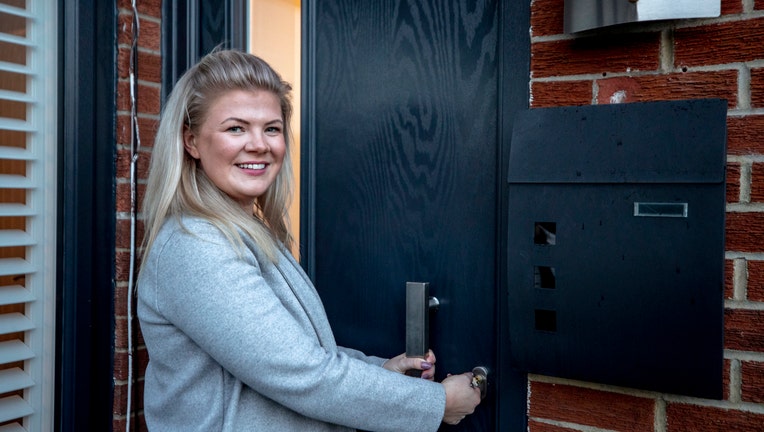Should you refinance your mortgage if you're planning to retire early?

If you're planning to refinance and retire early, make sure you understand the consequences.
As you approaching your retirement, you likely have a lot of questions. As a homeowner, one of the most important decisions you may have to make is whether refinancing your home is a smart financial decision. Current mortgage rates make a refinance even more tempting.
Refinancing your mortgage has its benefits. It can lower your monthly payments, cut the life of your loan, and allow you to change your loan term — but you need to do your research. Visit Credible to see if you could save money with a refinance before taking any big steps.
If you're considering a mortgage refinance and planning to retire early, here are questions you should consider:
How will a refinance save me money?
Refinancing a home is an important financial decision. As you near retirement, maximizing your money is essential so that you have enough funds to cover your living expenses for the rest of your life. When you're considering a refinance, it's critical to look at a few factors to determine if it's the right decision for you.
1. Consider current mortgage rates
A mortgage refinance loan can offer a lower interest rate. If refinancing your home could save you at least a full percentage point, it may be worth pursuing.
At the time of publication, Freddie Mac reported these average interest rates:
- 30-year fixed-rate mortgage: 2.75%
- 15-year fixed-rate mortgage: 2.25%.
For reference: interest rates around this same time in 2005 were at 6.36% for 30-year fixed-rate loans. If you still have some time left on your loan at the higher interest rate, you could potentially save thousands of dollars with a refinance.
Lower interest rates mean lower monthly payments and a lower total bill. Make sure to visit Credible to get in touch with experienced loan officers to get your mortgage questions answered.
4 WAYS TO GET LOWER MORTGAGE REFINANCE RATES
2. How long will it take to break even?
Lenders charge various fees on a home refinance. You should take some time to determine how long you will need to live in the house to save enough money to make the refinance worth the expense. As you research a refinance, make sure to use an online mortgage refinance calculator to help determine if you'll save money.
You can also pop the numbers into Credible's free online tools to determine if a refinance is right for you. Share your current home loan amount and decide if refinancing into a new loan (with new terms) could lower your monthly payments and cut the life of your loan, too.
HOW DOES REFINANCING YOUR MORTGAGE AFFECT YOUR CREDIT SCORE?
3. Should you consider refinancing loan length terms?
Another way to save money with a home refinance is by changing your loan terms from a 30-year loan to a 15-year one. While your monthly payments will be higher, the total amount you spend over the loan's life will be significantly lower. Additionally, if you have a variable rate loan, you could save money (and make it easier to budget) by refinancing to a fixed-rate loan.
To see how much you could save on monthly mortgage payments with a refinance, crunch the numbers and compare rates using Credible's free online tool. Within minutes, you can see what multiple mortgage lenders are offering.
MORTGAGE REFINANCES ARE BOOMING — HERE'S WHY YOU SHOULD APPLY NOW
How much will a refinance cost?
When you refinance your home, you replace your old mortgage loan with a new one. Accordingly, your lender may charge fees like a loan origination fee, application fee, home appraisal, title search and insurance fee, home inspection, and a recording fee. Additionally, an adverse market fee will apply to all new refinances completed after December 1, 2020. This fee is .5 % of the total loan and does not apply to refinance loans on properties less than $125,000
To avoid paying this new fee, get started with your mortgage refinance via the multi-lender marketplace Credible today. With Credible's free online tools, you can complete the entire origination process from comparing mortgage rates up to closing. Start the process now.
For example, if you refinance your home with a balance of $200,000, your lender will likely charge a fee between 2-6%, and you'll also have to pay the adverse market fee of .5 %. Assuming your lender charges 3% and you pay the .5% adverse market fee, your cost would be around $7,000.Lenders may allow you to roll these additional fees into your new loan. But will the fees set you back financially? Will the extra money make it harder for you to retire early? Make sure you know whether the fees could negatively affect your ability to move forward with your retirement.
If you're thinking of refinancing, consider using Credible. You can use Credible's free online tool to compare multiple lenders and see prequalified rates in as little as three minutes.
HOW TO LAND THE BEST MORTGAGE REFINANCE PRICE
Other options
If refinancing saves you money, you can use that extra cash to fund your early retirement further. You could also use the money to lower other debt payments, pay medical bills, or set the money aside in a high-yield savings account.
If you have multiple debts, you may consider a personal loan to make it easier to use the refinance savings to make a dent in your debt. You can visit Credible to use their personal loan calculator and find the best rates, starting at 4.99% APR.
HOW TO PREQUALIFY FOR A PERSONAL LOAN
No matter what you choose, taking time to research is an essential part of retirement planning.

